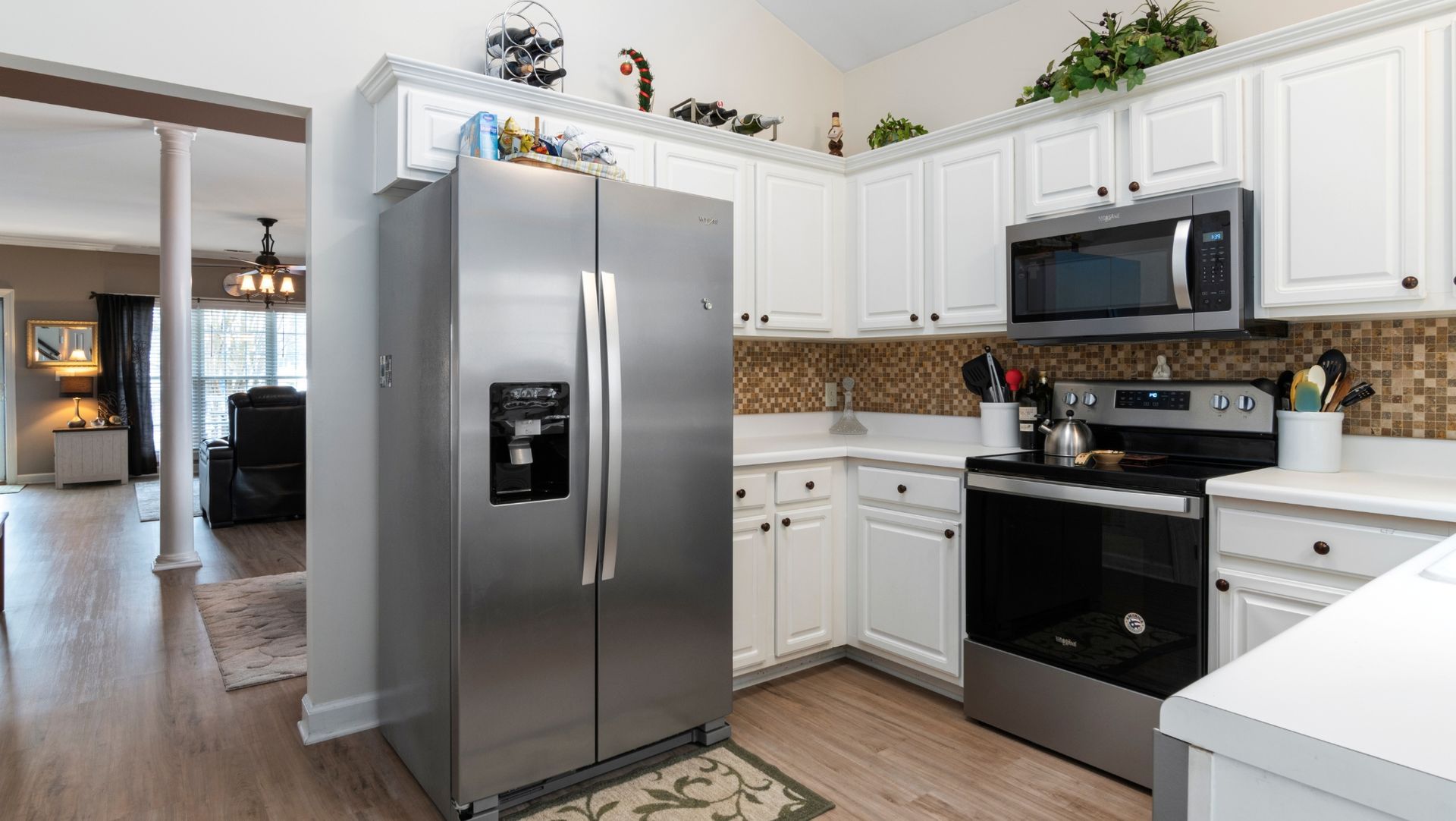October Move-In Success: Why Fall is the Perfect Time to Find Your Next Rental in Redding
Why AB 246 & AB 628 Could Spell Trouble for California Landlords
How Local Events Drive Leasing: Turn Community Calendars into Marketing Wins

California’s lawmakers have done it again; they’ve passed another law that’s got rental property owners double-checking their budgets and updating lease templates. Assembly Bill 628 (AB 628) was signed into law in October 2025 and introduces a big change to California’s habitability standards. Beginning January 1, 2026, landlords must provide and maintain both a working stove and refrigerator in most rental properties.
Sounds simple enough, but as always with California legislation, there’s more under the hood.
Let’s break it all down: what the law says, who’s affected, what to expect, and how to protect your investment and avoid legal headaches.
AB 628 amends California Civil Code §1941.1, the section that defines what makes a rental unit “habitable.” Before this bill, habitability meant things like heat, plumbing, and weatherproofing, but not appliances. That’s about to change.
As of January 1, 2026, any new, renewed, or amended lease must include a working stove and refrigerator, provided and maintained by the landlord, unless specific exceptions apply.
Key features of the bill:
There are a few carve-outs in the law. If your property falls into one of the categories below, you may not be required to provide appliances:
But for the vast majority of single-family rentals, apartments, duplexes, and multi-family units, you’re going to need to provide both appliances moving forward.
So if you’ve got tenants on a fixed-term lease that ends in July 2026, you’re not on the hook until renewal. But the moment that lease gets updated, even with a small change? The appliance rule kicks in.
Starting in 2026, appliances will no longer be optional. If your unit doesn’t currently include a stove or refrigerator, you’ll need to add them before the next lease renewal. If a tenant supplies their own refrigerator, that’s okay only if it’s documented in writing at the start of the lease. Otherwise, it’s your responsibility.
Once provided, you’re responsible for maintaining both appliances. That includes fixing breakdowns, replacing units when needed, and dealing with manufacturer recalls. If you get a notice that a stove or fridge you provided was recalled, you’ll have 30 days to fix or replace it. Miss that window? You could be in violation of the warranty of habitability, opening the door to rent withholding, repair-and-deduct claims, or worse — litigation.
By including appliances in the Civil Code, the state has made it clear: a broken stove or fridge = a potentially untenantable unit. That gives tenants legal remedies, and could give you legal headaches if you don’t act quickly when appliances fail.
The state isn’t helping you pay for any of this. If you own multiple units that don’t currently have appliances, you may be staring down a five-figure outlay in 2026. Time to start budgeting now.
✔
Inventory Your Properties Now
Make a list of which
units already have compliant appliances and which don’t. Note appliance ages and expected lifespans so you can prioritize replacements.
✔
Update Your Lease Templates
Make sure your lease language reflects appliance obligations. Include a section outlining which appliances are provided, their condition at move-in, and who’s responsible for maintenance. If a tenant provides their own fridge, get it in writing.
✔
Adjust Your Turnover Checklist
Add appliance checks and safety testing (especially for gas stoves) to your move-in/move-out procedures.
✔
Start Budgeting for Retrofits
Even if your current leases are grandfathered in, they won’t be forever. Stagger purchases, look for volume discounts, and build an appliance reserve fund.
✔
Communicate with Tenants Early
Let tenants know what’s coming so there are no surprises. A proactive landlord is a respected landlord.
If you don’t provide a working stove and fridge after Jan 1, 2026, and your lease doesn’t exempt you, your rental unit could be considered legally uninhabitable.
That opens the door to:
And don’t count on courts siding with you if you "forgot" to replace a recalled stove. The law gives you 30 days from notice, and judges don’t love excuses.
AB 628 is a big shift, and one that brings real-world consequences for unprepared landlords. With less than a year to go before it takes effect, the smartest thing you can do now is plan ahead: review your lease agreements, budget for upgrades, and start ticking off units that need appliance installs.
At Authority Property Management, we’re already working with our owners to navigate compliance, control costs, and make sure tenants, and properties, stay protected. Want help updating leases or scheduling appliance upgrades across your portfolio? We’ve got your back.
Share this post with a friend!
Disclaimer: The content on this blog is for informational purposes only and is not intended as legal or advice. Consult with a qualified professional for specific advice.

Anderson, Bella Vista, Cottonwood, Happy Valley, Igo, Keswick, Lake California, Millville, Mountain Gate, Oak Run, Ono, Palo Cedro, Redding, Shasta County, Old Shasta, Shasta Lake,
Authority Property Management Inc. in Redding, CA is a licensed Property Management Company and Rental Agency. We offer comprehensive real property management services in Shasta County and surrounding areas. Our expertise includes managing rental properties, single-family homes, apartments, and commercial properties.
Contact Us Today For Expert Property Management Services In Redding, CA!
2025 Authority Property Management Inc., Redding, CA. All Rights Reserved. View Our Privacy Policy